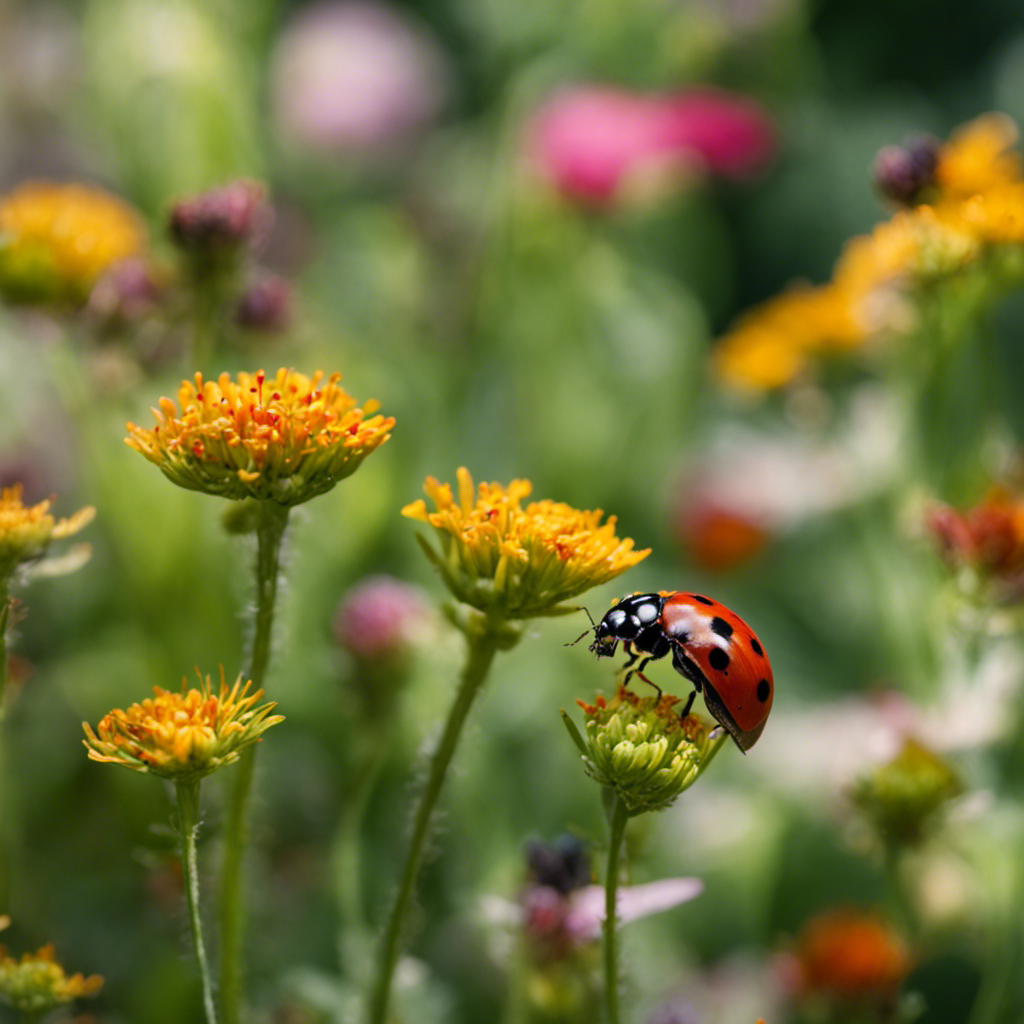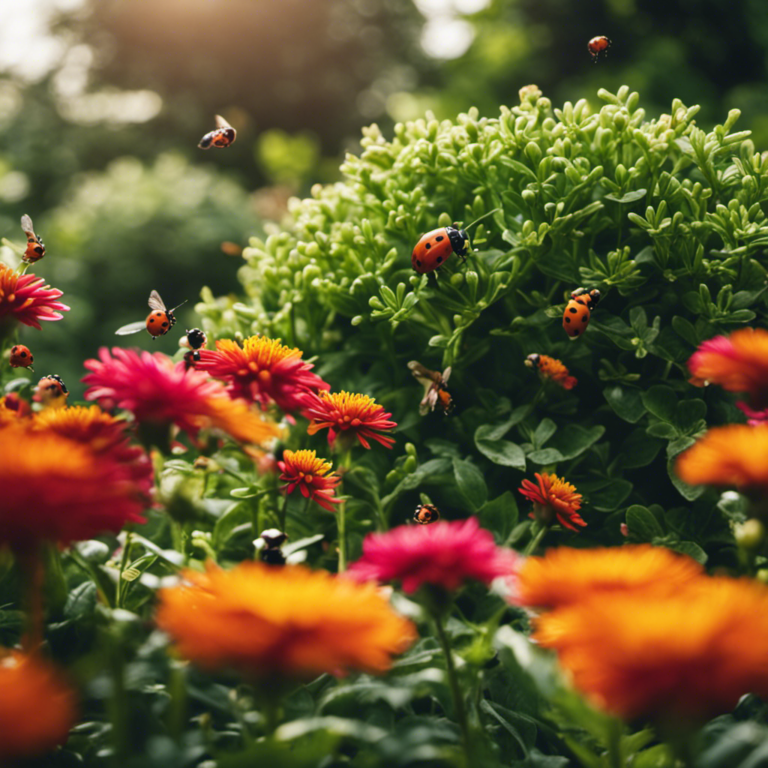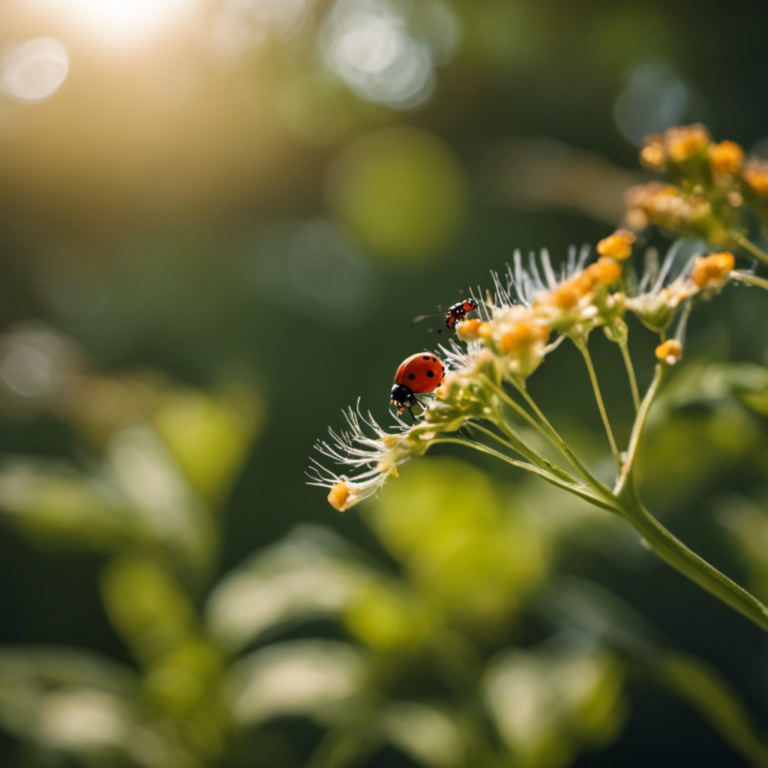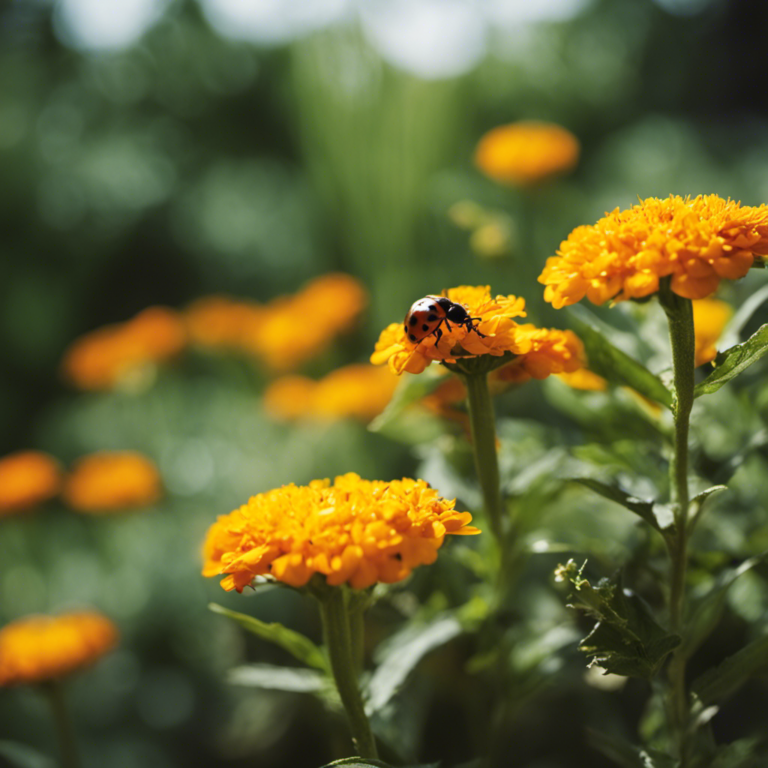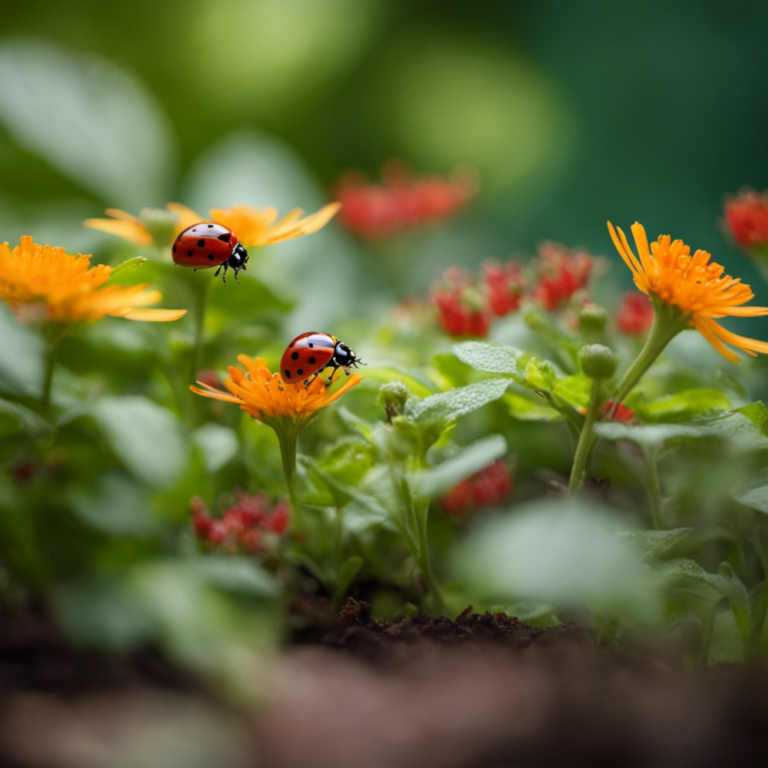Not sure if your pest control techniques are environmentally friendly? Take our quiz to find out!
Learn about the advantages of using natural predators and organic pesticides, as well as non-chemical methods for preventing pests.
We will also show you how to incorporate pest control into your organic farming practices.
This article provides valuable information and resources to help you protect your home and the environment.
Start your journey toward sustainable pest control today!
Key Takeaways
Using environmentally friendly pest control techniques offers numerous benefits for both the environment and human health. One interesting fact to consider is that organic farming practices, which often incorporate natural methods of pest control, have been proven to reduce pesticide levels in water sources by up to 90%. This reduction not only helps protect aquatic life but also ensures the quality of water for human consumption.
By adopting eco-friendly pest control methods, we can effectively manage pests while minimizing harm to the ecosystem. It’s important to prioritize sustainable practices that balance the need for pest control with the preservation of our environment.
Benefits of Eco-Friendly Pest Control
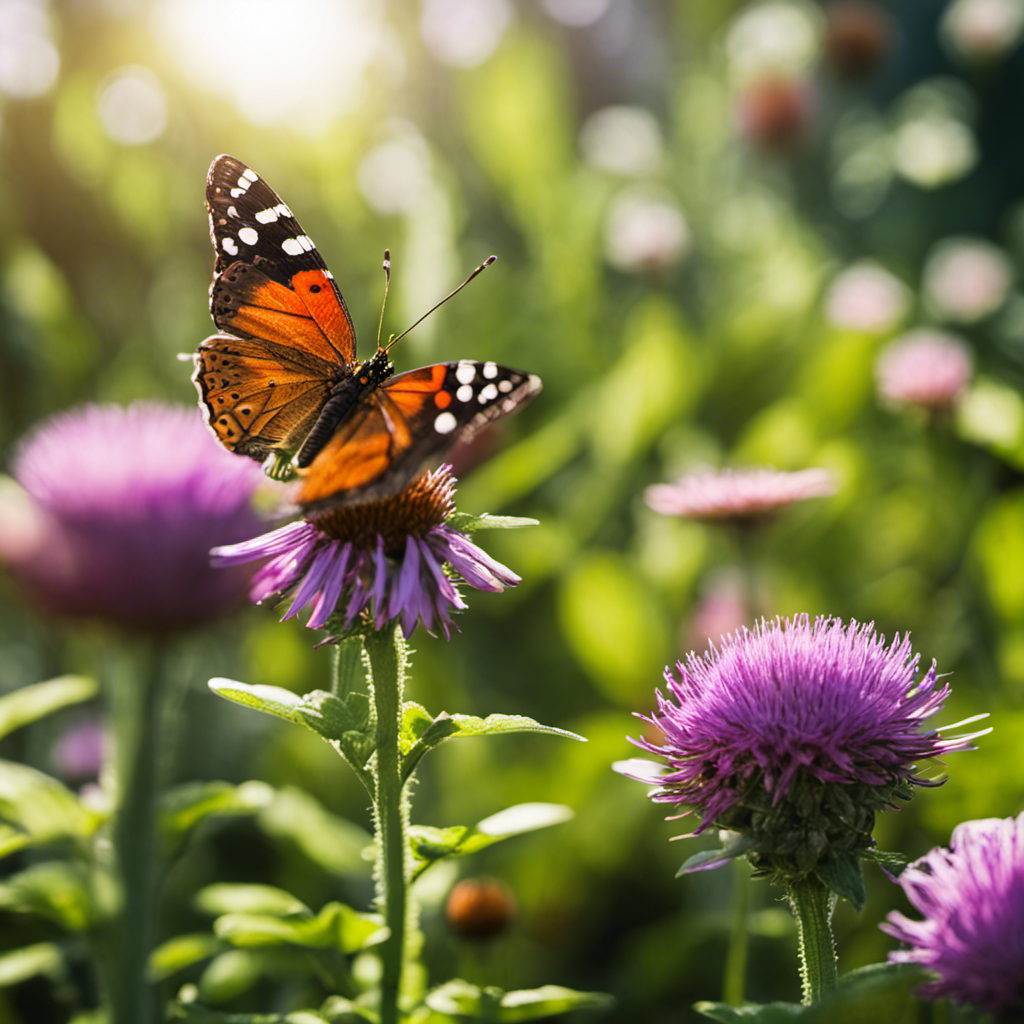
The practice of eco-friendly pest control techniques can significantly reduce your environmental impact. By opting for environmentally friendly methods and sustainable pest management techniques, you can enjoy several benefits.
One of the key advantages is the minimal use of harmful chemicals, which can have detrimental effects on the environment. Instead, you can choose natural alternatives such as botanical oils or biological control agents to protect your home and the surrounding ecosystem.
Additionally, eco-friendly pest control methods focus on prevention rather than eradication. This means implementing measures like sealing cracks and crevices, eliminating food sources, and maintaining proper sanitation to deter pests, without relying on toxic pesticides.
Natural Predators for Pest Management
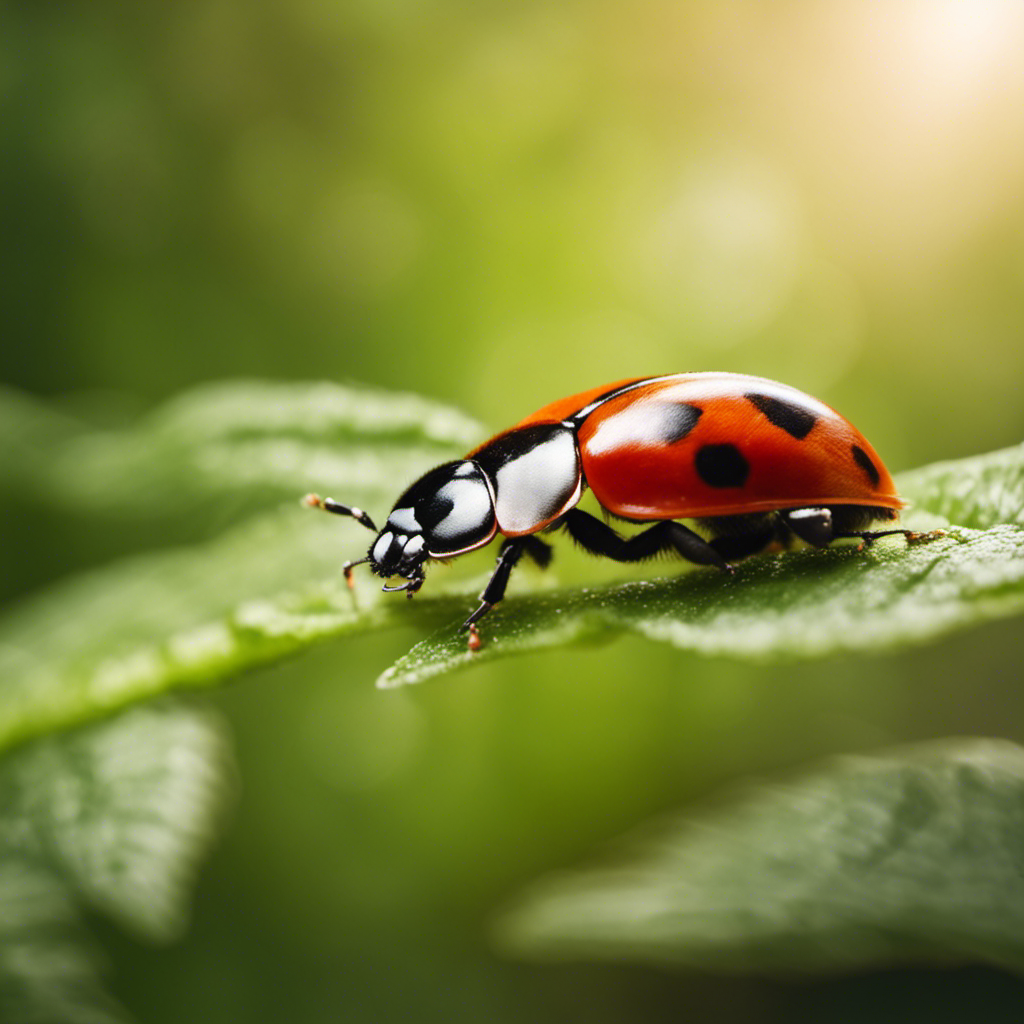
How can natural predators be effectively used for pest management?
Natural predators play a crucial role in controlling pest populations and can be a valuable tool for implementing natural pest control methods. By harnessing the benefits of biological control, these predators can help reduce the need for harmful chemical pesticides and promote a more eco-friendly approach to pest management.
Ladybugs, lacewings, and predatory mites are examples of natural predators that feed on pests like aphids, thrips, and spider mites, keeping their populations in check. This natural form of pest control not only helps maintain the balance of ecosystems but also reduces the risk of pesticide exposure to humans, pets, and the environment.
Organic Pesticides and Solutions

Using organic pesticides and solutions is a great way to implement natural pest control methods while minimizing the use of harmful chemicals. Sustainable pest management involves finding environmentally friendly pest eradication techniques that are safe for both the environment and human health.
Organic pesticides are made from natural sources like plants, minerals, or bacteria, making them a preferred choice for those who want to reduce their ecological impact. These pesticides specifically target pests while leaving beneficial insects unharmed.
In addition, organic solutions such as neem oil, garlic spray, and diatomaceous earth can also be used to repel or deter pests.
Non-Chemical Pest Prevention Methods

Implementing non-chemical methods for pest prevention is crucial for eco-friendly pest control. By utilizing techniques that are non-toxic, you can effectively manage pests while minimizing harm to the environment. Here are some methods you can consider:
-
Physical barriers: Install screens on windows and doors to keep insects out while still allowing fresh air to circulate. Additionally, seal any cracks or openings in walls, floors, or foundations to prevent pests from entering your home.
-
Proper sanitation: Regularly clean your living spaces and promptly dispose of garbage. This helps eliminate food sources for pests, making your home less appealing to them.
-
Natural repellents: Use natural repellents such as essential oils or plants with strong scents like lavender or mint to deter pests from entering your home.
-
Biological control: Introduce natural predators or parasites that feed on pests to help control their population naturally.
Integrating Pest Control With Organic Farming
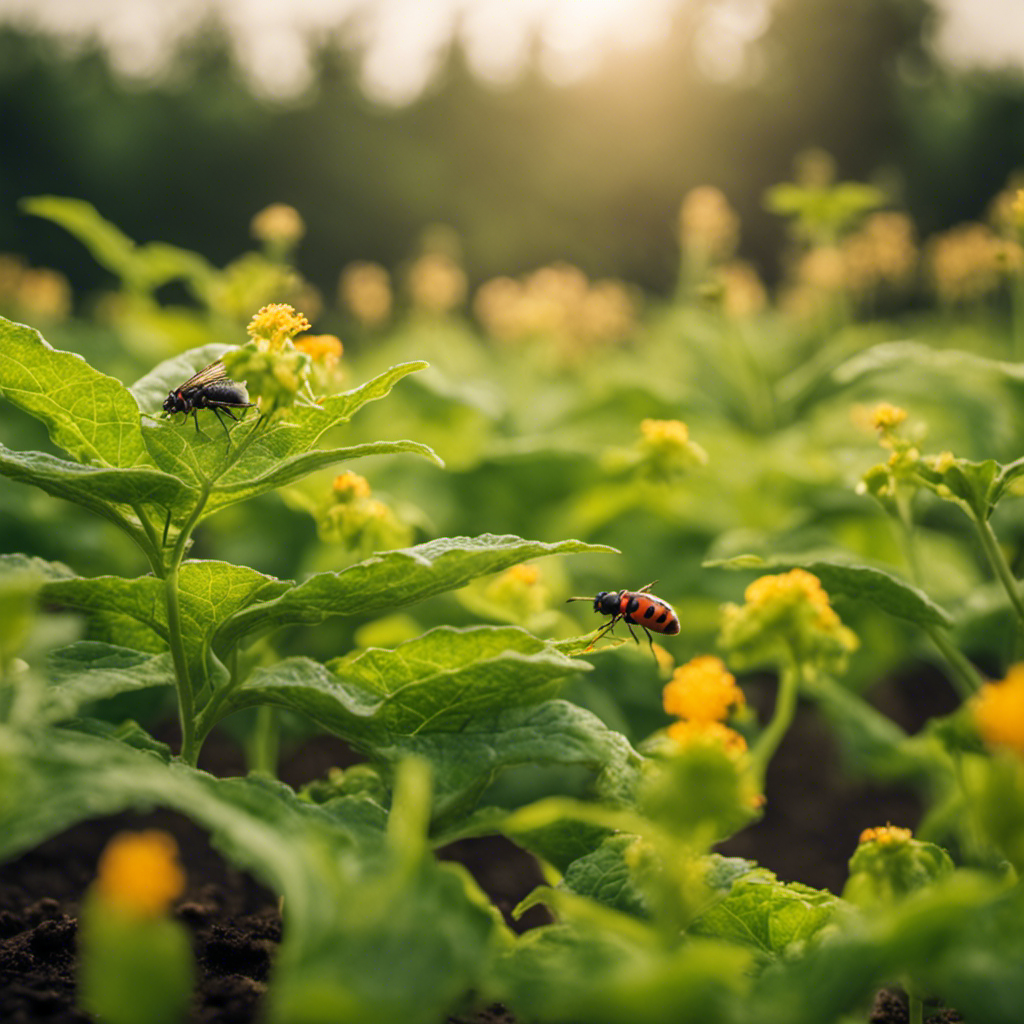
Integrating Pest Control With Organic Farming
To achieve environmentally-friendly pest control on your organic farm, it’s important to integrate pest control methods. This involves implementing sustainable agriculture practices and obtaining pest control certification.
Sustainable agriculture practices aim to minimize the use of synthetic pesticides and promote natural pest control methods. These practices include crop rotation, intercropping, and the use of beneficial insects and birds to control pests. By implementing these methods, you can reduce reliance on chemical pesticides and create a healthier environment for your crops and beneficial organisms.
Additionally, obtaining pest control certification ensures that you’re following industry standards and guidelines for eco-friendly pest control. Integrating pest control with organic farming not only helps protect the environment but also supports the health and well-being of consumers who prefer organic produce.
Conclusion
Overall, using environmentally friendly pest control techniques provides numerous benefits for both the environment and human health.
A fascinating fact to consider is that organic farming practices, which often incorporate natural methods of pest control, have been shown to reduce the amount of pesticides that end up in water sources by up to 90%. This not only helps protect aquatic life but also ensures the quality of water for human consumption.
By adopting eco-friendly pest control methods, we can effectively manage pests while minimizing harm to the ecosystem.
